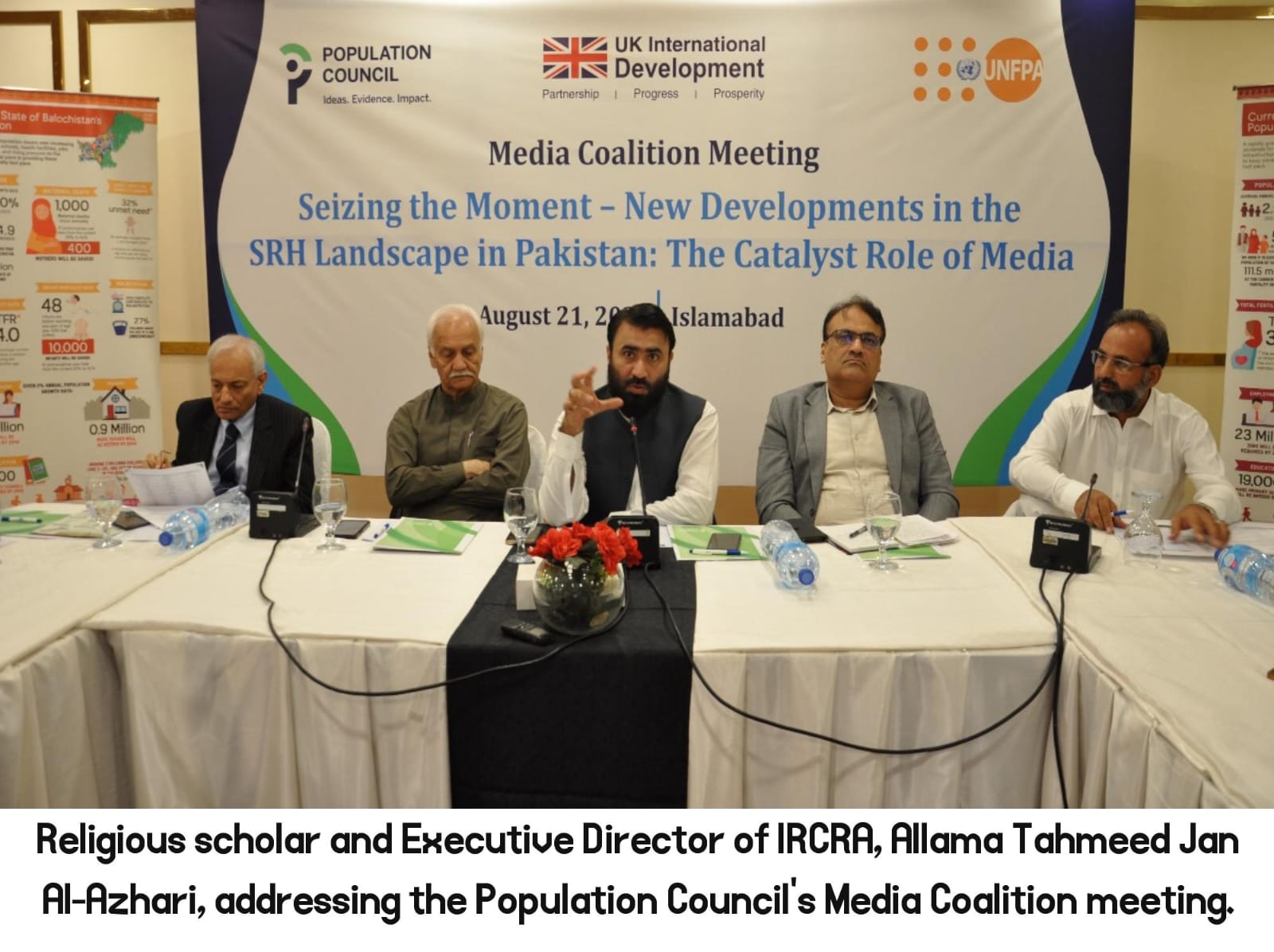Quetta (By Anila Ajaz): Senior Director of the Population Council, Dr. Ali Mir, has said that in order to find sustainable solutions to the challenges arising from Pakistan’s rapid population growth, the Prime Minister has established a special high-level committee under the leadership of the Federal Minister for Planning Commission. He termed this initiative a significant achievement and the result of the Population Council’s long-standing efforts.
Speaking at the “Media Coalition on Population” meeting, organized by the Population Council in collaboration with UNFPA, Dr. Ali Mir welcomed the Council of Islamic Ideology’s declaration on birth spacing as an important and positive step. He emphasized that despite these positive developments, glaring inequalities persist both among provinces and within provinces in terms of socio-economic indicators. According to him, the media must play a vital role in addressing these disparities by ensuring that government decisions are effectively implemented.
The meeting, themed “New Developments in Pakistan’s Reproductive Health Landscape and the Role of Media,” brought together journalists from leading media outlets across the provinces, as well as religious scholars and medical experts. Participants discussed ways to strengthen the role of media in advancing family planning and improving reproductive health outcomes.
Highlighting recent progress, Population Council’s Deputy Manager of Communications, Ikram Al-Ahad, said that important initiatives have been taken in recent months. These include: the Council of Islamic Ideology (CII) declaring birth spacing in line with Islamic teachings for the health of mothers and children, the Prime Minister’s establishment of a high-level committee on population, exemption of sales tax on contraceptives, and a National Assembly resolution recognizing rapid population growth as a national challenge.
Adding a religious perspective, Allama Tahmeed Jan Al-Azhari, Executive Director of the International Research Council for Religious Affairs (IRCRA), termed the CII declaration a milestone. He stated: “Islam not only permits but encourages appropriate birth spacing for the health and welfare of women and children.”
From a medical perspective, Dr. Saima Zubair, Information Secretary of the Society of Obstetricians and Gynecologists of Pakistan (SoGP) and Senior Vice President of the Pakistan Academy of Family Physicians (PAFP), shared alarming statistics. She noted: “The maternal mortality rate in Pakistan is approximately 180 per 100,000 live births, while neonatal mortality stands at 64 per 1,000 live births. Every year, nearly 3.8 million unintended pregnancies occur, putting women’s lives at risk. If a 24-month interval between births is observed, neonatal deaths could be reduced by up to 50 percent.”
The participants unanimously agreed that the combination of religious support, political commitment, and financial facilitation represents a unique opportunity. By leveraging media to highlight these issues, Pakistan can be guided towards a healthier and more sustainable future.


